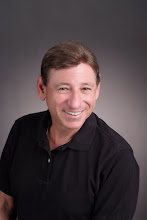Thoughts from "The Automatic Millionaire".....
In my previous column I shared with you the story of the McIntyres, a very average couple who despite their very average income became millionaires. By simply watching the small stuff and saving their money automatically, they were able to retire comfortably in their early 50s.
A few readers of that column asked in my message board, "Well, did they have kids? It must be the lack of children that made it easier for them to be rich!"
In fact, the McIntyres have two children. Both kids went to college and are now debt-free college graduates.
So what's the secret? How did the McIntyres become self-made millionaires on less than $40,000 a year? It starts with a simple truth.
It's Not What You Make, It's What You Spend
How much you earn has almost no bearing on your ability to build wealth. Ask anyone who got a raise last year if their savings actually increased. In almost every case, the answer will be "no." Why? Because more often than not the more we make, the more we spend!
Jim McIntyre taught me the trick to getting ahead financially was watching the small stuff, the little spending habits we're better off without.
How important is it to learn this lesson? Take a minute and consider these numbers. An astonishing 70 percent of Americans are living paycheck to paycheck, according to a poll I conducted with Temple University. Thirty percent of those polled had less than $1,000. On average, Americans have less than three months' worth of expenses in the bank.
The Latte Factor
Most of us don't think about how we spend our money. If we do, we focus solely on the big-ticket items. Even worse, we don't realize how much wealth we might have if, instead of dribbling our income away, we invested just a little of it.
By coming to understand what I call the "Latte Factor," you're going to become more aware of how much you're wasting on small things and how to redirect that money to help you build a fortune. Regardless of your income, you can start to build wealth and, ultimately, more freedom. You can finally start doing what the rich do: Get your money to work for you instead of you working for it!
Before you get up in arms about giving up coffee, let me be clear: The Latte Factor isn't about coffee at all. It's about learning how to "find your money" and redirect it toward savings. I came up with the concept about 10 years ago after a woman taking one of my investment courses stopped me in my tracks.
"David your ideas are good in theory, but they don't have anything to do with reality," she said.
When I asked her what she meant, she explained that I talked about saving $5 to $10 a day like it was no big deal. Well, for her, she said, it was impossible, because she was living paycheck to paycheck.
We then went through her expenses for a typical day. What did we find? Well, her double non-fat latte was $3.50, non-fat muffin $1.50, juice $3.95, juice boost $.50, PowerBar $1.75 -- that was $11.20 already by 11:00 a.m., not including lunch or anything else for the rest of the day!
I pulled out a calculator and showed her that if she could save even $5 a day and put it into a retirement plan, that $5 would become $150 a month, nearly $2,000 a year. Figuring a 10 percent return, the stock market average over the last 50 years, I asked her how much she, being 23, might save by the time she was 65? She guessed $100,000, then $200,000, then $500,000. She was shocked when I told her it was almost $1.2 million. These lattes suddenly looked very expensive.
The point of the Latte Factor isn't for you to give up coffee at Starbucks. Millions go to Starbucks everyday. I visit them too. The moral is this: You've got more money than you think and you're spending it on lots of small things. Maybe it's bottled water? Maybe it's cigarettes?
The Latte Factor is about realizing that you can save more money.
What's Your Latte Factor?
To reveal your Latte Factor, get a notebook and carry it with you for one day. Write down every penny you spend, including cash, checks, credit, and debit cards. This may seem simple, but this exercise can be life changing. There's something about seeing in black and white how much you spend and what you spend it on that motivates you to change.
Trust me when I tell you that regardless of the size of your paycheck, you probably make enough to become rich. The first step is finding just $5 to $10 you can cut from daily spending.
Decide right now that you can live on a little less and start to save today. I promise it will be worth it. All those little things add up fast to your financial freedom.
Namaste.
Jeff


5 Comments:
Jeff,
This is definitely one area that I have been working on. Looking for all of the different ways to cut my spending.
Jeff
It is interesting how some people spend on their "needs". It's football season - I've not fallen for the new Football Network.
Larry E.
This definately goes back to the habits blog. We have to break down our old habits and build up new ones. The power of compounding our money is very attractive. Every little bit can help.
I think it comes down to wants and needs. After a while those wants become stored and the money is spent automatically.
I love this. I can't wait to write down everything I spend tomorrow. This should be very telling. I still have 2 college young adult children I'm supporting and we eat out way to much....back to mac and cheese
Post a Comment
<< Home